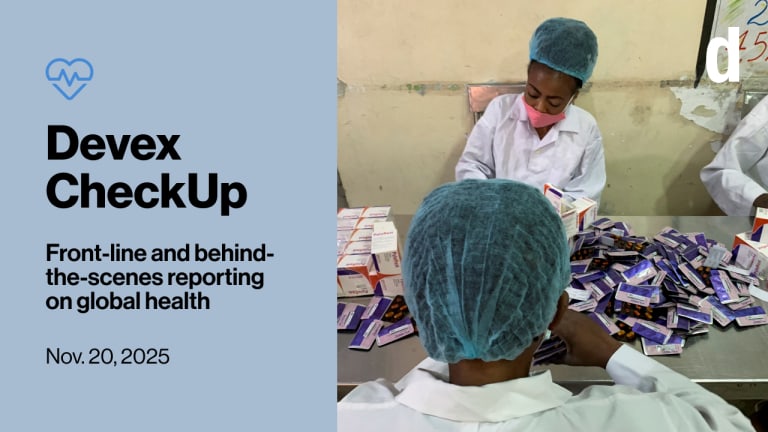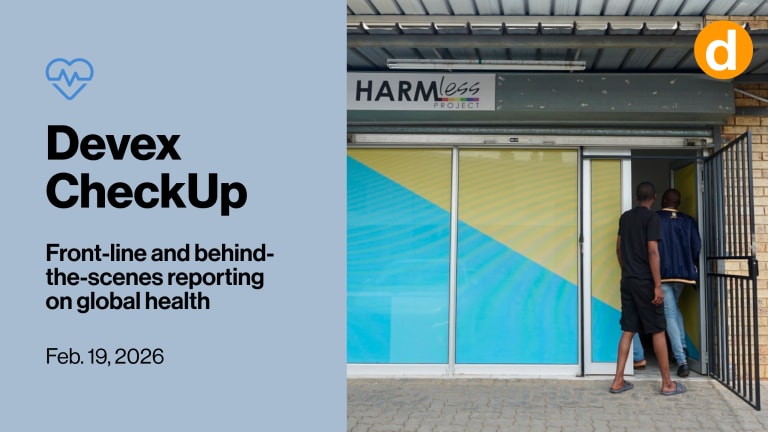Devex CheckUp: The health sector begins to reckon with climate change
By Andrew Green // 16 March 2023
The effects of climate change on people’s health are coming into alarming focus across the global south.
People are dangerously hungry in the Horn of Africa after a multiyear drought decimated crops and starved their animals. In Pakistan, unprecedented floods cut off people’s access to essential medicines. Malawi also suffered from floods that have unleashed a lengthy cholera outbreak in the country.
How to prevent these health crises — or the climate catastrophes that trigger them — is less clear.
Printing articles to share with others is a breach of our terms and conditions and copyright policy. Please use the sharing options on the left side of the article. Devex Pro members may share up to 10 articles per month using the Pro share tool ( ).
Search for articles
Most Read
- 1
- 2
- 3
- 4
- 5








